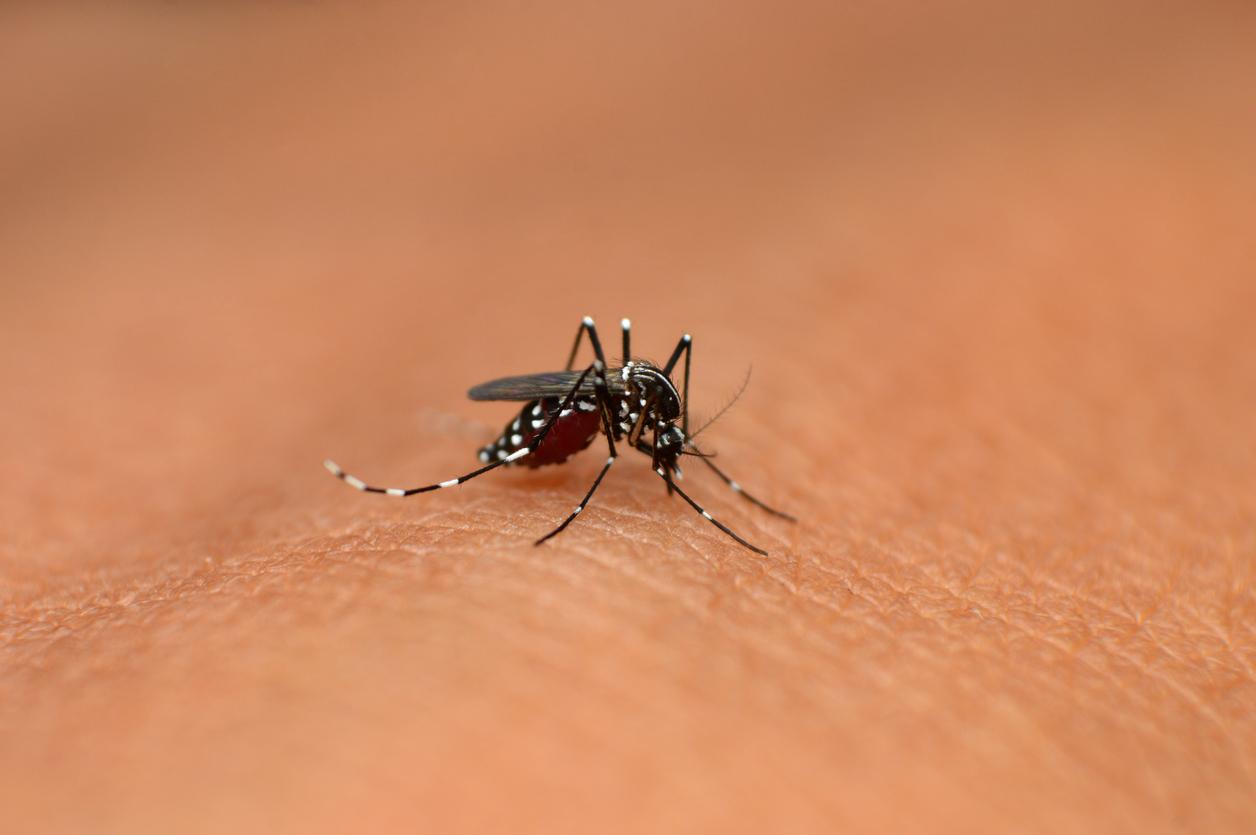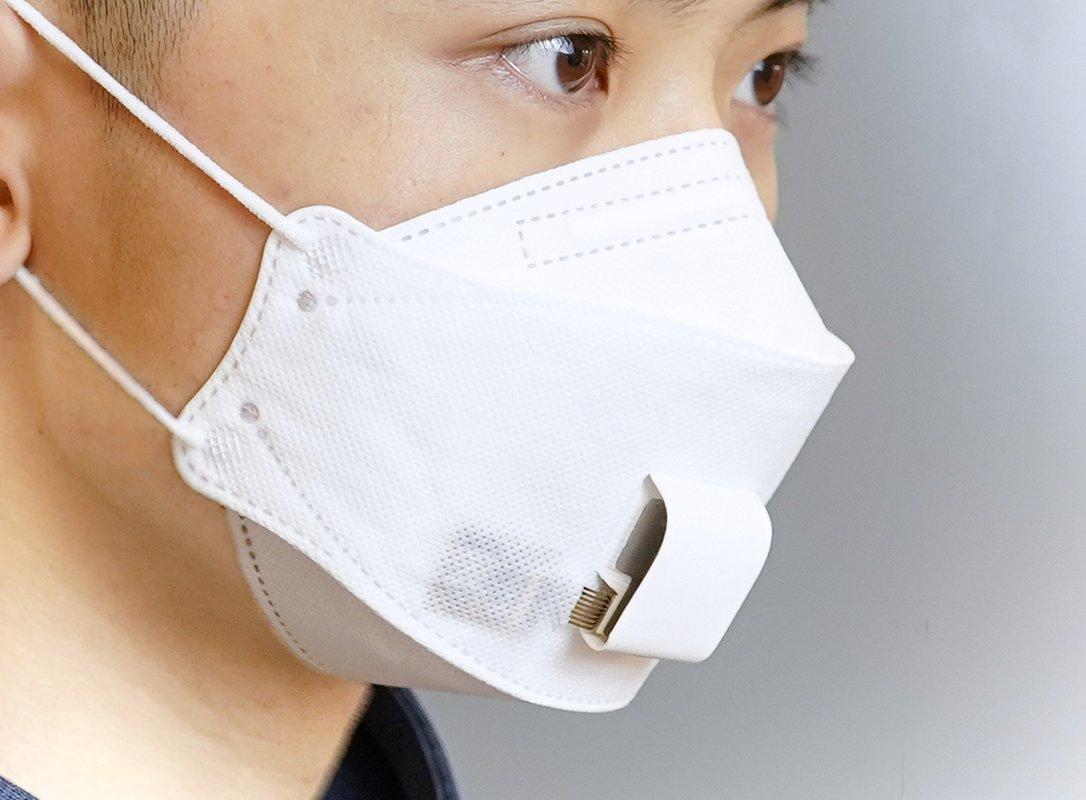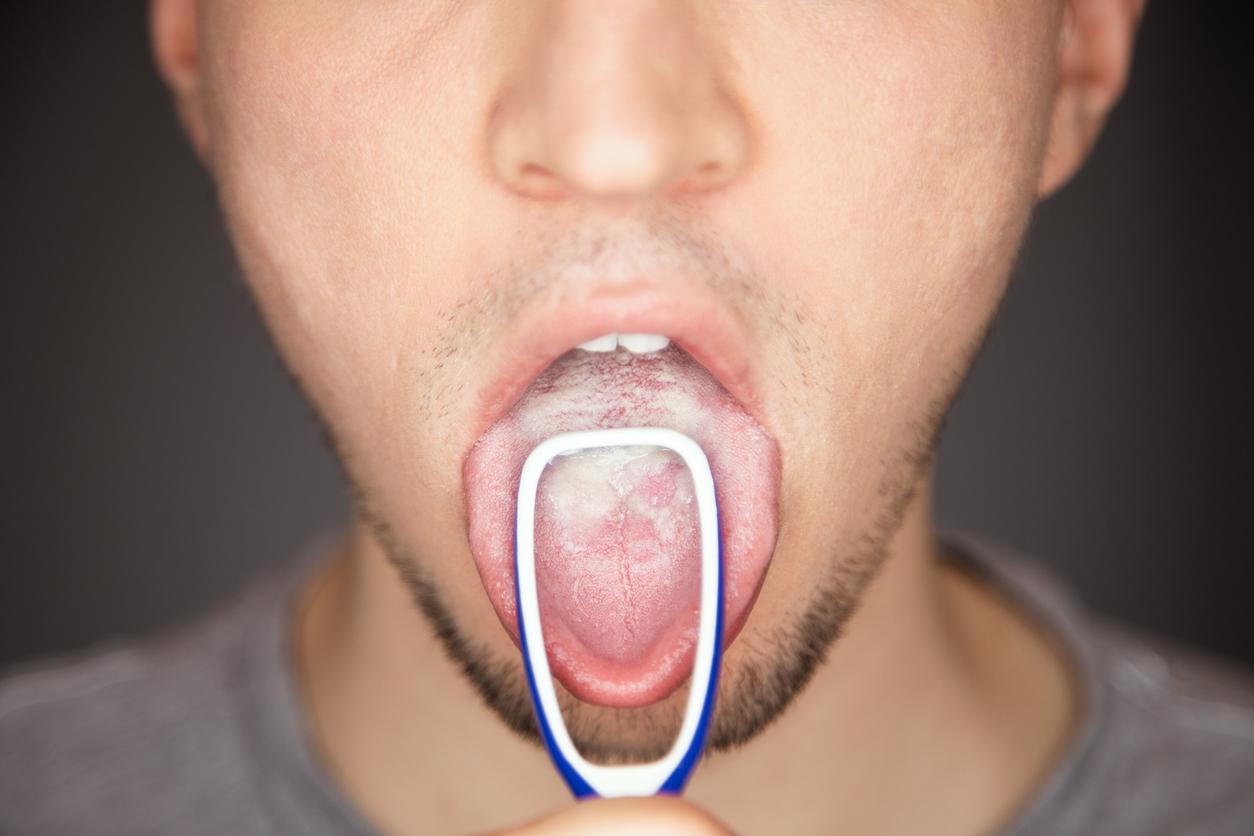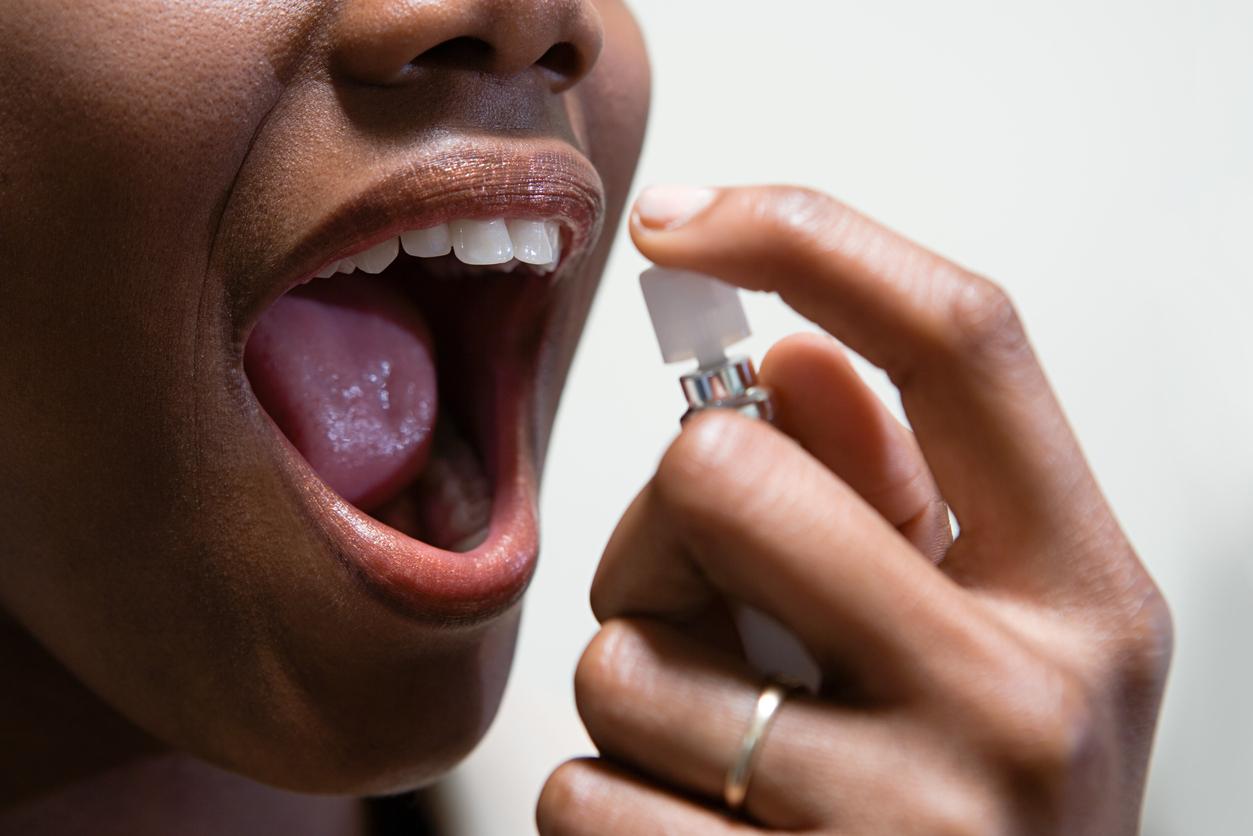
Brushing, rinsing and scraping helps
Some bacteria in the mouth can cause gum disease or persistent bad breath. The older you get, the more trouble you can get. The solution: good oral care.
Oral flora: a beautiful word that suggests that thousands of flowers bloom between tongue and teeth. In reality, it is bacteria that inhabit our mouths, as many as four to five hundred species. Most of them do a good job: they protect against bad bacteria. As long as the balance between ‘good’ and ‘bad’ bacteria is in balance, there is nothing to worry about. But if the bad guys among the bacteria get the upper hand, that can cause problems: chronic bad breath (halitosis) or a serious gum infection (periodontitis) can be the result.
Periodontitis starts with a buildup of bacteria in the small space between teeth and gums: the pockets. There they form a layer of plaque, which can harden into tartar. As a result, the gums become inflamed and begin to separate from teeth. The gums then look a little red or swollen and sometimes bleed when brushing. This is gingivitis, the first stage. What you should not do is brush very carefully or stop brushing. Good oral hygiene is essential to clear up the bacteria as much as possible.
If you don’t, the bacteria will go a step further. They burrow deeper and deeper between teeth and gums until they reach and attack the jawbone. The jawbone breaks down slowly, causing teeth to become loose and even fall out. This severe form of gum disease is called periodontitis.
Aggressive bacteria
About 10 to 20 percent of people have periodontal disease, especially people over 55 suffer from it. Because the older you get, the longer you are exposed to bacteria. People with periodontal disease are not necessarily bad brushers. If you happen to get hold of an aggressive bacteria, it can cause a lot of damage. You can also have a ‘predisposition’: if it runs in the family, you have an increased risk of periodontal disease.
Smoking and stress also make you more susceptible. The bad thing about periodontitis is that you usually don’t notice you have it. It rarely causes pain and the gums can look neat pink. The only way to find out in time is through regular check-ups at the dentist. He uses a pocket probe to check the space between gums and teeth. Most dentists do this at every six-monthly checkup. To make sure this happens, you can ask your dentist about your gums’ DPSI (Dutch Periodontal Screening Index score, with a score of 0 to 4: the higher the score, the worse the gums).
If gingivitis can still be treated with good brushing, a dentist or periodontist should be involved with periodontitis. It thoroughly cleans the pockets. If the pockets are too deep for this cleaning, flap surgery is required: under local anaesthetic, the gums are detached from the teeth and reattached after cleaning. Sometimes bacteriological research shows that antibiotics are needed to fight a persistent bacteria.
After a flap operation, a mouthwash with chlorhexidine is almost always prescribed: it attacks all bacteria. The disadvantage is that with long-term use it can have unpleasant side effects, such as temporary discoloration of teeth and loss of taste. For long-term use, antibacterial mouthwashes without alcohol are recommended, because prolonged use of a mouthwash with alcohol can lead to problems with mucous membranes.
Taboo
Bacteria can not only cause gum disease, but also halitosis, or bad breath. That is still a taboo. Hardly anyone dares to say anything about it when a conversation partner smells his mouth. As a result, people with chronic bad breath (halitosis) feel even more insecure and prefer to avoid contact with others. They hardly dare go out out of shame. Businessmen who buy an extra large desk to keep their distance and mothers who no longer hug their children are not uncommon examples.
To reassure you: anyone who smells his mouth after a night of drinking, smoking or eating garlic does not yet have halitosis. Alcohol or garlic breath is only temporary, with halitosis people suffer from chronic bad breath. A chewing gum or peppermint really doesn’t help. It is estimated that about a quarter of the population occasionally suffers from bad breath, and 2 percent actually suffer from halitosis. Elderly people in particular can suffer from it, why exactly is not clear.
A common misconception is that the complaints are caused by a stomach problem. It is true that a metabolic disorder or a respiratory infection can lead to halitosis, but in the vast majority of cases (about 90 percent) the cause of bad breath is in the mouth. In this oral halitosis there is a disturbed balance of the bacteria: the anaerobic bacteria (which live without oxygen) dominate the aerobic bacteria (which live with oxygen). Both bacteria feast on the proteins of food scraps in the mouth. The anaerobic bacteria spread foul-smelling gases, including the familiar smell of rotten eggs.
The culprits are found in plaque on teeth in people with gum disease. They also like to settle on the back part of the tongue. This tongue coating or tongue coating is clearly visible in the form of a white or yellowish layer on the tongue.
Simple treatment
The trouble with halitosis is that you can’t smell the bad breath on yourself. People with halitosis become accustomed to their own mouth odor. Compare it with someone who starts to use more and more perfume through habituation. There are tricks to smell your own breath, but you can’t rely on that. There is really only one reliable method to find out if you have bad breath: ask your partner, children or someone else you can really trust and give an honest answer.
A consultation at a center for periodontology can also provide a definitive answer. Special equipment is used to determine whether someone has halitosis, and if so, what form and how severe. Although halitosis is a major social problem, in most cases it is quite easy to solve. With a good tongue cleaner and the right mouthwash you can go a long way. They tackle the problem in two ways: a tongue cleaner removes the proteins – the food for bacteria – from the tongue. The rinsing agent tackles the bacteria itself.
A tongue cleaner is also called a tongue scraper, but that is actually not the right word. Hard pressing and scraping is not necessary, the point is to remove the tongue coating from the tongue with a few strokes. This may cause a tendency to gag at first, but you get used to it quickly. An additional advantage of tongue cleaning is that the taste improves, because the taste buds on the back of the tongue do their job better. Tongue cleaners are inexpensive (between one and six euros) and can be obtained at pharmacies and drugstores.
Some experts say it doesn’t matter which cleanser you buy, it could even be done with a tablespoon. Others recommend professional tongue cleaners that are neither too sharp nor too slack. Brushing your tongue with a toothbrush is also possible, but it is less effective. Although you disrupt the bacterial layer, you do not remove it. In addition, it is much more difficult to reach the back of the tongue with a toothbrush.
To rinse
In addition to cleaning the tongue, it is important to gargle with an antibacterial rinse. Again, make sure that there is no alcohol in it. Although this gives a bubbly and burning sensation in the mouth, it does not remove the cause of the complaints.
Only antibacterial rinses that contain zinc lactate do that. Zinc lactate captures the sulfur gases and neutralizes the foul odor, as it were. In addition, such an agent suppresses the amount of bacteria. There are two rinses that contain zinc lactate: Halita gargle (for sale at pharmacies, €20 for 500 ml) and the new Meridol Halitosis (for sale at pharmacies and the better drugstore, € 7.79 for 400 ml).
It is important that the substance comes into contact as much as possible with the back part of the tongue, where the bacteria accumulate. One way to achieve this is to stick out the tongue while gargling. Very difficult, but effective.
Mmv periodontist and halitologist Dr Edwin Winkel, affiliated with the Clinic for Periodontology in Amsterdam and the University Medical Center Groningen.
Sources):
- Plus Magazine

















